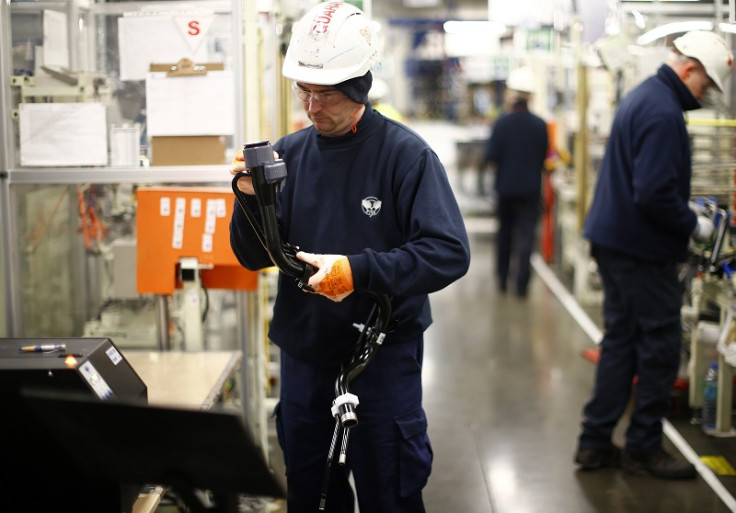UK Economic Recovery Brings Little Pay Joy for Struggling Workers

Wages will remain weak despite steadily improving employment as fewer employers in Britain expect their basic pay to rise.
The news will bring more confusion for Bank of England policymakers, who are eyeing a hike in interest rates once pay and productivity improve.
They are already puzzled by how the headline labour market data can look so positive, with employment rising solidly and unemployment dropping ahead of forecasts, while wages are in real terms decline and productivity per worker is depressed below its per-financial crisis norm.
According to the Chartered Institute for Personnel and Development's (CIPD) quarterly labour market outlook for summer 2014, 42% of employers think basic pay will increase at their organisations.
That is a fall from 48% in the previous three months. And 10% of employers expect to freeze pay, up from 8% in the quarter before. Overall, pay growth in the private sector is expected to stay at 2%, with just 1% in the public and voluntary sectors.
While the general employment trend is positive, the near-term outlook is weakening. The report said its balance of employers looking to imminently increase their headcount fell to +23 from +26.
"The UK jobs machine powers on. Recruitment intentions are high, SMEs provide much of the fuel and we are seeing this all over the UK, with employers in the Midlands and the North having the highest short-term employment optimism," said Mark Beatson, chief economist at the CIPD, which surveyed 1,026 firms for its report.
"This is great news for jobseekers, but we urgently need to see jobs growth accompanied by productivity growth for workers to feel the benefits of the recovery too.
"This would help place it on a more balanced and sustainable footing and create the economic headroom for real wage increases."
The Office for National Statistics (ONS) said the UK employment rate hit 73.1% in March to May 2014, the highest rate on record. The unemployment rate dropped to 6.5% over the same period, from 6.9% before.
But total pay growth, which includes bonuses, slowed sharply to 0.3% - a record low. Regular pay, excluding bonuses, grew by 0.7%. These readings are far below price inflation, which jumped in June to 1.9%, meaning the real-terms decline in wages has accelerated.
Britain's economy is recovering strongly, with GDP growth set to reach 3% in 2014 – the fastest rate of any Western economy.
So the Bank of England is keen to tighten its ultra-loose monetary policy stance, which includes lifting the all-time-low 0.5% base rate.
Rates have been held down since the financial crisis to keep the cost of credit cheap and banks' lending to businesses and consumers while the economy slumped.
Now the economy is stronger, the Bank of England is keen to lift rates and curtail the risk of credit bubbles developing, as a booming economy and low interest rates encourage people to take on excessive and risky levels of debt.
But by hiking rates too early, with pay growth so weak, the Bank of England would run the risk of denting the economic recovery because consumer spending power would be reduced.
Instead of spending, consumers would have to redirect their incomes toward higher debt repayments each month.
© Copyright IBTimes 2025. All rights reserved.






















